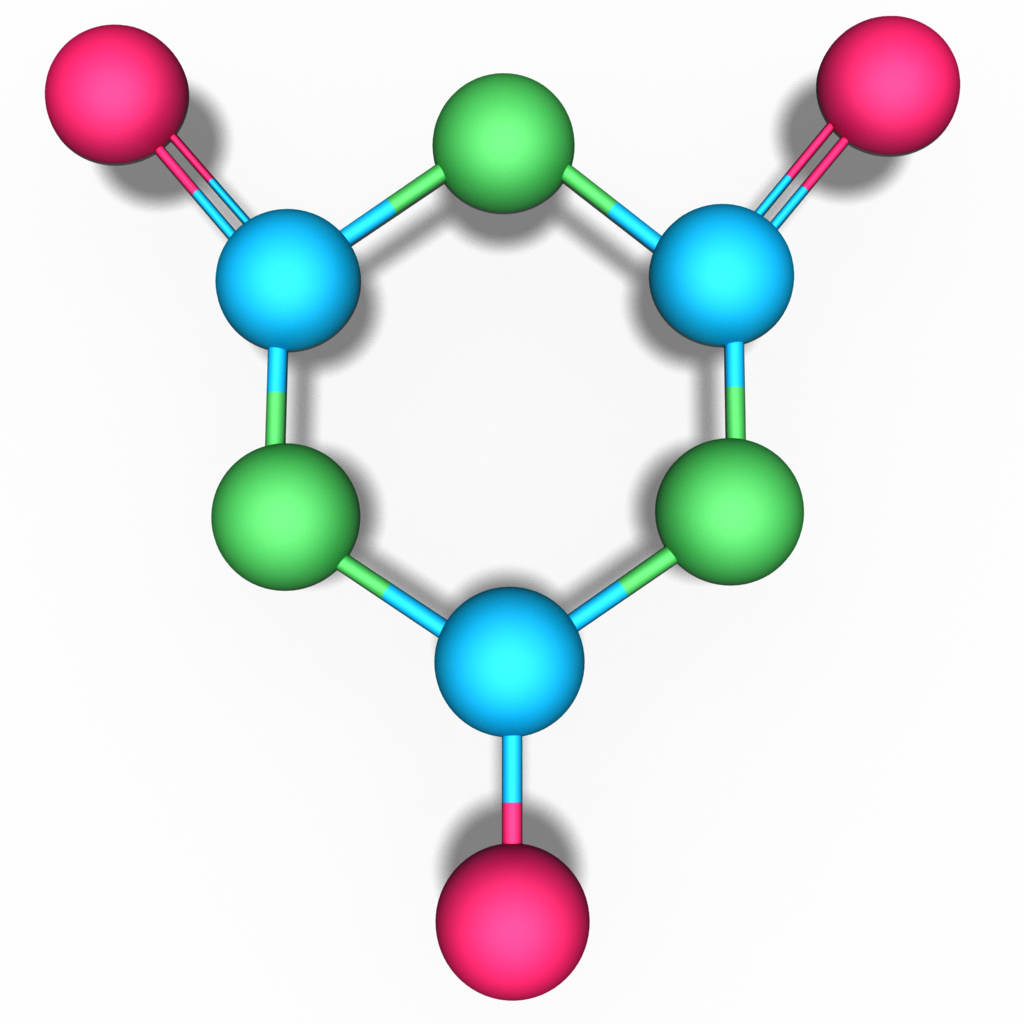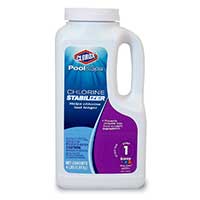The main purpose of stabilizer (also known as Cyanuric Acid, CYA or Conditioner) in the water is to protect chlorine from the destructive Ultraviolet(UV) rays of the sun. Without stabilizer in the swimming pool, the UV rays of the sun will leave the pool with zero free chlorine in just a few hours. Proper levels of stabilizer can result in Free Chlorine residuals remaining three to ten times longer in the pool water.
When adding chemicals, it is recommended to add half, wait for one full turnover, re-test/calculate and dose again as necessary. Some dry Stabilizer can take days to fully dissolve.
READ: Pool Stabilizer 101: Understanding the Importance, Testing Options, and Chemicals for Balanced Pool Water
RESULTS SHOWN HERE
More About Pool Stabilizer
When using a chlorine pool, actively maintaining the stabilizer levels in the water is very important. Cyanuric Acid (CYA) has no disinfection properties; it is needed to stabilize the Free Chlorine (FC) extending the sanitizing active life, that is why CYA is referred to as "stabilizer." Stabilizer is only necessary in pools using chlorine.
How much stabilizer to add to pool?
Cyanuric Acid (Stabilizer)

READ: Cyanuric Acid and Its Role in Swimming Pool Maintenance: A Comprehensive Guide for Pool Owners
LOW STABILIZER EFFECTS < 60ppm:
Half the chlorine in the pool can be eliminated in under one hour by UV rays from the sun. Low stabilizer leaves the pool water vulnerable to organic contaminates and bacteria without proper sanitation.
HIGH STABILIZER EFFECTS > 80ppm:
Lots of chlorine shocks and tablets all have some small amount of stabilizer in them. Stabilizer is a dissolved solid so it will build up in the water over time as various shocks and tablets are used. High swimming pool stabilizer affects chlorine by putting it in a locked state, preventing the chlorine from combining with contaminates in the water. High stabilizer also leaves the pool water vulnerable to organic contaminates and bacteria only this time the sanitizer is present just unable to oxidize the contaminants.
Tips About Pool Stabilizer
Chlorine with Stabilizer:
Some types of chlorine have stabilizer included in the mixture, like Trichlor and Dichlor. Stabilizer is a dissolved solid and does not evaporate. When using chlorine with stabilizer added its important to keep an eye on the stabilizer levels to prevent it from getting to high.


